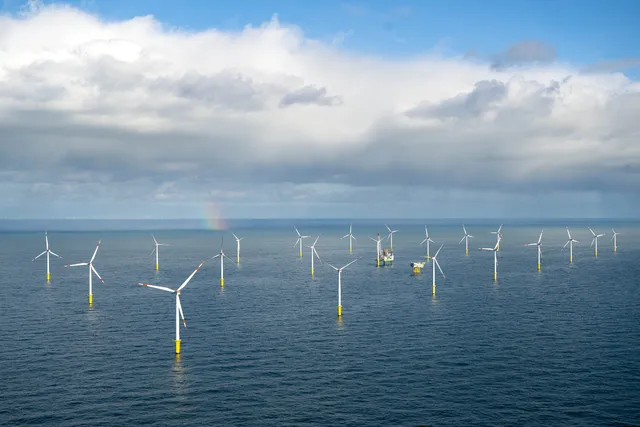Green Tech: Innovations Saving the Planet

As the impacts of climate change and environmental degradation become increasingly apparent, the demand for sustainable solutions has never been higher. Green technology, or “green tech,” represents a pivotal area of innovation aimed at addressing environmental challenges while promoting economic growth. From renewable energy sources to advancements in energy efficiency, green tech is driving a revolution in how we approach sustainability and resource management. This article explores some of the most groundbreaking innovations in green tech that are making significant strides toward saving the planet.
Renewable Energy: Harnessing Nature’s Power
One of the most transformative green tech innovations is the development and expansion of renewable energy sources. Solar power, wind energy, and hydropower are leading the charge in reducing reliance on fossil fuels and lowering greenhouse gas emissions.
- Solar Energy: Photovoltaic (PV) technology has evolved significantly, with new materials and designs enhancing the efficiency of solar panels. Innovations like perovskite solar cells, which promise higher efficiency at lower costs, and building-integrated photovoltaics (BIPV), which seamlessly incorporate solar cells into building materials, are making solar energy more accessible and versatile.
- Wind Power: Advances in wind turbine technology, including larger and more efficient turbines and floating offshore wind farms, are expanding the potential for wind energy. These innovations enable the capture of wind energy in locations previously deemed unsuitable, such as deep ocean areas.
- Hydropower: While traditional hydropower is well-established, new technologies like micro-hydropower systems and kinetic hydropower generators are providing solutions for small-scale and low-impact energy production. These innovations help harness the energy from rivers and streams with minimal environmental disruption.
Energy Efficiency: Reducing Consumption
Improving energy efficiency is another critical aspect of green tech, aimed at reducing the amount of energy required to perform the same tasks. Innovations in this area are helping to lower energy consumption and operational costs across various sectors.
- Smart Grids and Energy Storage: Smart grids utilize advanced communication and control technologies to optimize the distribution and use of electricity. Coupled with energy storage solutions such as advanced batteries and flywheels, smart grids can balance supply and demand more effectively, integrate renewable energy sources, and enhance grid resilience.
- Building Technologies: Green building technologies are transforming how we design and construct buildings. Innovations such as energy-efficient windows, high-performance insulation, and smart thermostats contribute to significant reductions in energy use. Additionally, green roofs and walls help with thermal insulation and urban cooling, reducing the heat island effect in cities.
- LED Lighting: The widespread adoption of light-emitting diode (LED) lighting has revolutionized energy efficiency in lighting. LED bulbs use a fraction of the energy compared to traditional incandescent bulbs and have a much longer lifespan, leading to substantial reductions in both energy consumption and waste.
Sustainable Transportation: Moving Towards Clean Mobility
Transportation is a major contributor to greenhouse gas emissions, but green tech is paving the way for cleaner and more efficient mobility solutions.
- Electric Vehicles (EVs): The rise of electric vehicles is one of the most significant advancements in sustainable transportation. Innovations in battery technology, such as solid-state batteries, are improving the range and performance of EVs while reducing charging times. Furthermore, the expansion of charging infrastructure is making EVs more practical and accessible for consumers.
- Hydrogen Fuel Cells: Hydrogen fuel cell technology offers a zero-emission alternative to traditional combustion engines. By combining hydrogen with oxygen, fuel cells produce electricity with only water and heat as byproducts. This technology is being explored for various applications, from passenger vehicles to heavy-duty trucks and public transportation.
- Public Transit and Micromobility: Innovations in public transit systems, including electric buses and smart transit solutions, are enhancing the efficiency and sustainability of urban transportation. Additionally, micromobility options such as electric scooters and bicycles provide eco-friendly alternatives for short-distance travel.
Waste Management and Recycling: Closing the Loop
Effective waste management and recycling are crucial for minimizing environmental impact and conserving resources. Green tech innovations in this area are helping to create a more circular economy.
- Advanced Recycling Technologies: New recycling methods, such as chemical recycling and automated sorting systems, are improving the efficiency and effectiveness of waste processing. These technologies enable the recycling of materials that were previously non-recyclable, reducing the amount of waste sent to landfills.
- Waste-to-Energy: Waste-to-energy technologies convert non-recyclable waste into usable energy, such as electricity or heat. This process not only reduces the volume of waste but also provides a renewable energy source, contributing to a more sustainable waste management system.
Conclusion
Green tech is at the forefront of efforts to combat climate change and promote environmental sustainability. Through innovations in renewable energy, energy efficiency, sustainable transportation, and waste management, green tech is paving the way for a more sustainable future. As technology continues to advance and society embraces these solutions, the potential for green tech to make a significant impact on the planet’s health and well-being grows ever larger. Embracing and supporting these innovations is essential for ensuring a cleaner, greener world for future generations.




